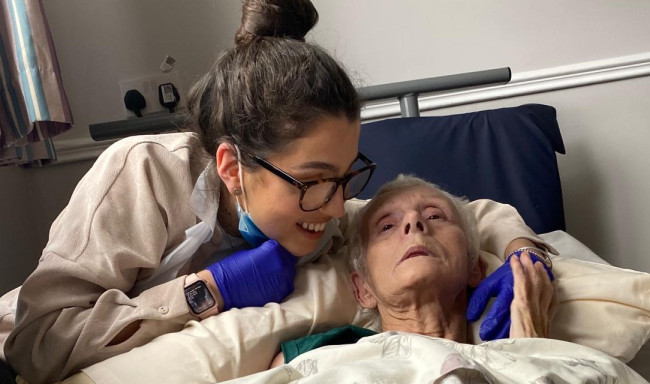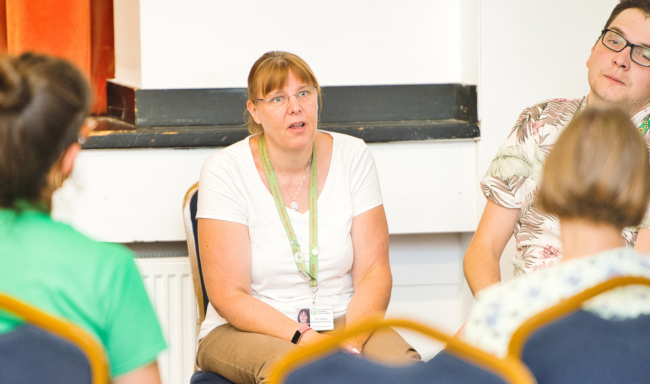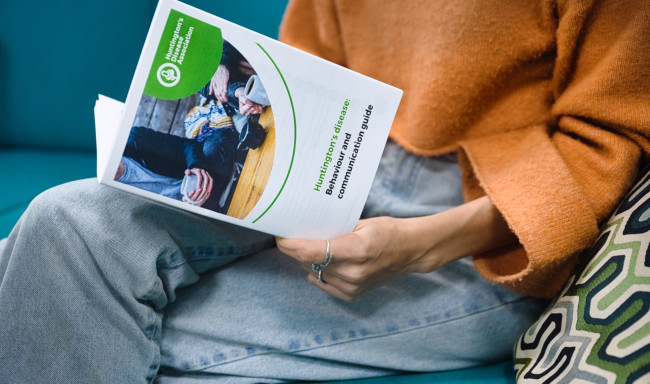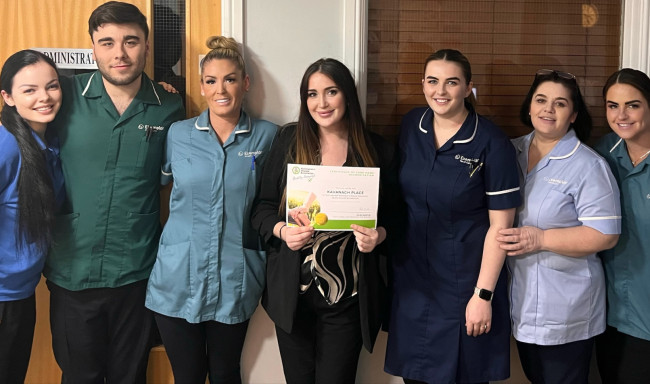If you're at risk of Huntington's, there's no pressure to find out your status - many people choose not to.
Testing is a decision you shouldn't rush into, once you find out, it is not something you can unknow. Niall shares his experience about why, up until now he had never chosen to get tested. He discusses the time in his life when things changed and shares his testing journey with us.
Up until 2023, I didn't feel like I wanted to know my result, I didn’t feel like I needed to know that information at that time in my life.
I found out about Huntington’s being in the family when I was in my early teens. Since then, I’ve found some form of comfort and acceptance in believing I too would go on to develop it in my 50s and my life would change drastically from there onwards.
‘You haven’t inherited the faulty gene, and you won’t go on to develop Huntington’s disease.'
That was the news I was told in April 2023. Although this was incredibly good news for me and my family, processing that as a genuine reality has been difficult. For context, my dad has the gene, which put me at a 50% chance of also having the faulty gene. I convinced myself that I would never be able to have a family, grow old with someone or reach retirement.
I always wanted to have a family but believed that if I did, I wouldn't live long enough to watch them grow up, get married and for me to become a grandparent. I have lived my life the past 20 years believing I was positive for Huntington’s and feeling like I was on a countdown to 50, so to be given the unfathomable news that I was negative, is such a huge mental adjustment.
Wanting to start a family
I got married to my wife Kayleigh in 2019, who I had confided in about my situation very early on in our relationship; she understood my predicament with Huntington’s and embraced it all with open arms. However, I’ve always wanted children, I may not have known what career I wanted, but I knew I always wanted children.
We found out there was a way of having children without risking passing on the gene and without me needing to ever find out whether I had the gene. Non-disclosure PGT with IVF. This was a long rollercoaster of a journey, but it resulted in our beautiful daughter Martha, who was born in October 2020. This process enabled us to start a family and ensure we had a Huntington's disease-free baby all while not needing to find out my status.
Martha was our only Huntington's-free embryo from our NHS-funded round of PGT, so we knew that we would eventually hit a crossroads if we wanted more children. PGT costs around £12,000-£14,000 privately, and there is no guarantee that this would work.
In my head, my two options were to either get tested or accept that we weren’t going to have any more children. If I was positive, we could have done CVS, which involves testing in the womb at 12 weeks, however, that would mean terminating the pregnancy if the baby was positive. I don’t think I would have had it in me mentally to put our family through that.
The PGT-IVF journey
I was referred to the Genetics department at Manchester Hospital through our GP, and it was Dr Rhona Macleod who was our initial consultant.
I would like to thank Dr Rhona MacLeod from St Mary’s Hospital in Manchester who has helped beyond measure over the past few years. She was our genetic counsellor who supported us through PGT through IVF and the testing process. She is a credit to her profession and supporting people through their Huntington’s journey.
Dr Rhonda introduced us to the world of IVF through PGD, she pretty much supported myself and my wife through having my daughter Martha who was Huntington's disease free (as I wasn't aware of my results at this point) all the way through to me going through the testing process. She always made us feel at ease and comfortable, and always seemed to approach the hard topics/conversation in a manner that made it so easy to talk about them.
The right time for genetic testing
Up until 2023, I didn't feel like I wanted to know my result, I didn’t feel like I needed to know that information at that time in my life. Getting the test is such a mental drain in terms of deciding if it is the right time.
You have to attend four sessions with a genetic counsellor spaced out over 6-12 months to ensure you are mentally strong enough to handle the outcome, and even after you have been for the test, you then wait four to six weeks to get your results.
To be honest, I don’t think there is ever a right time to get tested, but I knew that finding out at this time would help us as a family better prepare and plan for the future.
To be given the news that I was negative was something I have never entertained. I walked into that clinic room at the hospital expecting to hear “I’m sorry but you have the gene”. When I heard that I was negative my first thought was to ask for a retest. I am still trying to get my head around the results, and I think only time will help me adjust my way of thinking and hopefully someday soon I will allow myself to enjoy the result.
Support from the genetics team
Rhona offered all the support pre-testing and was always reassuring in explaining all of my options.
She was always supportive of the stance if I wasn't ready for my results, that I could wait until I was.
I would also like to thank Dr Rachel Faulkner, who is the in-house Clinical Psychologist for the Genetic Counselling department in Manchester. She has supported me through the transition since receiving my results and has helped me process my journey since.








